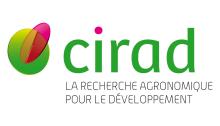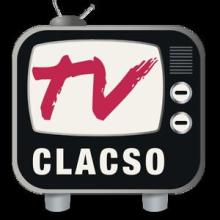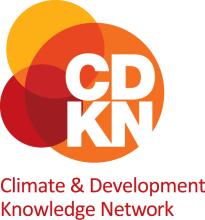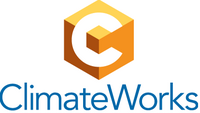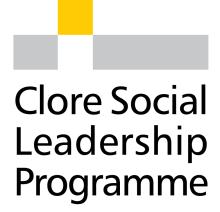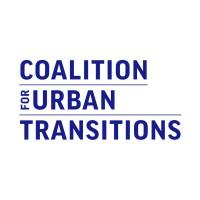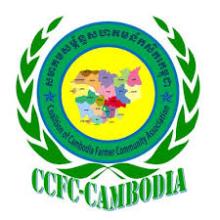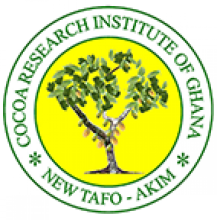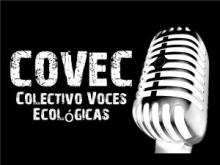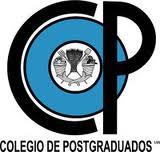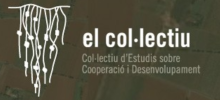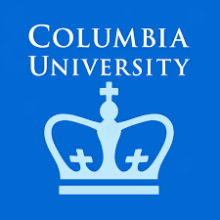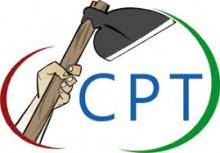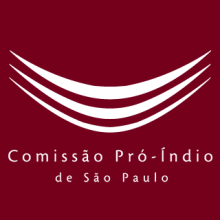Le bibliothèque du foncier comprend des ressources provenant de plus de 1 890 fournisseurs d'informations nationaux et internationaux. Découvrez les organisations et les institutions qui utilisent le Land Portal pour partager leurs recherches, leurs données et leurs histoires en libre accès.
CIRAD
CIRAD is a French research centre working with developing countries to tackle international agricultural and development issues.
Status
CIRAD (Centre de coopération internationale en recherche agronomique pour le développement) is a public industrial and commercial enterprise (EPIC) under the joint authority of the Ministry of Higher Education and Research and the Ministry of Foreign and European Affairs.
Mandate
CIRAD works with the whole range of developing countries to generate and pass on new knowledge, support agricultural development and fuel the debate on the main global issues concerning agriculture.
CIRAD is a targeted research organization, and bases its operations on development needs, from field to laboratory and from a local to a global scale.
Activities
CIRAD's activities involve the life sciences, social sciences and engineering sciences, applied to agriculture, food and rural territories.
CIRAD works hand-in-hand with local people and the local environment, on complex, ever-changing issues: food security, ecological intensification, emerging diseases, the future of agriculture in developing countries, etc
Cities Alliance
What is the Cities Alliance?
The Cities Alliance is a global partnership for urban poverty reduction and the promotion of the role of cities in sustainable development.
Cities Alliance Members
The Cities Alliance partnership features a broad range of members, including: local authorities, national governments, non-governmental organisations, multi-lateral organisations, and Associate Members. For our current membership, please see Our Members.
What does the Cities Alliance do?
The Cities Alliance’s overall strategic objectives are to support cities in providing effective local government, an active citizenship and an economy characterised by both public and private investment. The Cities Alliance seeks to realise this goal by:
- Developing and/or enhancing national policy frameworks to address urban development needs
- Developing and implementing local inclusive strategies and plans
- Strengthening the capacity of cities to provide improved services to the urban poor
- Developing mechanisms to engage citizens in city or urban governance
Civil Society and Governance Programme, IDS
The Civil Society and Governance Programme was a major research project funded by the Ford Foundation and based at IDS.
The three-year research programme, established in April 1998, examined the interplay between civil society and governments in 22 different countries, spanning six international regions.
The idea of 'civil society' has achieved prominence in political and developmental discourse over the past two decades, particularly in connection with successive waves of democratisation, beginning in Latin America and Eastern Europe, and spreading across the developing world. In normative terms, civil society has been widely seen as an increasingly crucial agent for limiting authoritarian government, strengthening popular empowerment, reducing the socially atomising and unsettling effects of market forces, enforcing political accountability, and improving the quality and inclusiveness of governance. Reconsideration of the limits of state action has also led to an increased awareness of the potential role of civic organisations in the provision of public goods and social services, either separately or in some kind of 'synergistic' relationship with state institutions.
Therefore the main aims of this research programme were:
- To gain a clearer analytical and practical understanding of the character and functions of civil society, both in general and in the light of systemic and other variations between and within regions.
- While recognising that civil organisations can play a number of potentially positive roles, to concentrate on those activities which can enhance (or detract from) the quality of political life and governance in different societies.
- To develop practical measures which can strengthen civil society and enhance its impact as an agent for improving political life and governance -- with particular emphasis on seeking ways to improve government policies toward poor, excluded and vulnerable groups, and to strengthen their access to and influence on the policy process.
Civitas - Revista de Ciências Sociais
Revistas Científicas - EDIPUCRS
A EDIPUCRS está acompanhando a tendência mundial de apresentar a comunicação científica sob forma eletrônica. Além de democratizar e disseminar o conhecimento, este formato é ecologicamente correto, traz maior facilidade de gestão dos periódicos e possibilita a publicação em um tempo menor.
O Portal de Periódicos da PUCRS, que foi inaugurado em 2006, é gerenciado pela EDIPUCRS. Atualmente esta Editora Universitária publica 27 periódicos científicos, disponíveis exclusivamente em mídia eletrônica. Os periódicos da EDIPUCRS utilizam o Sistema Eletrônico de Editoração de Revistas (SEER), sob o conceito de acesso aberto. Seguimos o princípio de que o acesso aberto à comunicação científica permite maior intercâmbio global de conhecimento.
CLACSO TV
CLACSO.TV es una plataforma web de difusión de entrevistas, documentales y diversos registros audiovisuales que aborda temas de relevancia en el campo en las ciencias sociales y las humanidades.
CLACSO.TV busca realizar un aporte al análisis de una multiplicidad de temas y problemas de la realidad política, educativa, social y cultural mundial, desde una perspectiva crítica, pluralista y académicamente rigurosa.
CLACSO.TV se nutre de producciones propias y de aportes de otras agencias, canales y portales que contribuyen, desde el campo audiovisual, a promover el debate público informado sobre los grandes asuntos de la realidad contemporánea.
CLACSO.TV es una iniciativa del Consejo Latinoamericano de Ciencias Sociales (CLACSO) en asociación con la Organización de Estados Iberoamericanos para la Educación, la Ciencia y la Cultura (OEI).
ClientEarth
ClientEarth is an environmental law charity, with offices in London, Brussels, Warsaw, Berlin, and Beijing. It was founded in 2008 by James Thornton. As lawyers and environmental experts, they use the law to hold governments and other companies to account over climate change, nature loss and pollution
In 2017, ClientEarth was named the most effective environmental group by green leaders. In 2012 BusinessGreen gave ClientEarth its NGO of the Year award. In 2013 ClientEarth was awarded the Law Society's LSA Award for Excellence in Environmental Responsibility.
Clima Info
O Instituto ClimaInfo surge com o objetivo de oferecer um ambiente livre de especulações e fake news sobre mudanças climáticas para contribuir com um debate produtivo, baseado em fatos e dados reais, sobre ações e políticas para a mitigação e a adaptação às consequentes mudanças climáticas globais.
No ClimaInfo você encontrará notícias, estudos e pesquisas sobre os vários temas relacionados às mudanças do clima, além de entrevistas, análises e verificações de fatos. Além do site, mantemos boletim diário com o resumos diário das principais notícias publicadas na imprensa.
Climate & Development Knowledge Network
The Climate and Development Knowledge Network (CDKN) aims to help decision-makers in developing countries design and deliver climate compatible development.
Our mission
The Climate and Development Knowledge Network supports decision-makers in designing and delivering climate compatible development. We do this by combining research, advisory services and knowledge management in support of locally owned and managed policy processes. We work in partnership with decision-makers in the public, private and non-governmental sectors nationally, regionally and globally. We hold strongly to the ideals of human development and environmental sustainability.
What we do
CDKN is able to provide support through its alliance organisations and procure the best services from around the world. We strive to deliver the highest quality technical advice, forge uniquely effective partnerships, and drive the latest and best thinking on climate compatible development.
Within the broad scope of climate compatible development, we work across four strategic themes:
- Climate compatible development strategies and plans
- Improving developing countries’ access to climate finance
- Strengthening resilience through climate-related disaster risk management
- Supporting climate negotiators from the least developed and most vulnerable countries.
Climate Analytics
Climate Analytics was formed in 2008 to bring cutting edge science and policy analysis to bear on one of the most pressing global problems of our time: human-induced climate change. As the urgency of this problem has grown, so have we. Our team of over 130 counts 32 different nationalities working at our offices in Togo, USA, Australia, Trinidad and Tobago, Nepal and Germany, as well in a diverse set of countries including the Bahamas, Bhutan, Burkina Faso, Samoa and the UK.
We are motivated by the desire to empower those most vulnerable – Small Island Developing States and Least Developed Countries – to use the best science and analysis available in the international climate negotiations, as well as developing policies and institutional capacity to adapt to climate change.
We undertake extensive research on the 1.5°C temperature limit in the Paris Agreement, and the risks and vulnerabilities these countries face. We also evaluate progress on climate action and show governments how they can act on their policies to keep global warming to this limit.
Climate Diplomacy
The climate crisis is one of the greatest challenges of the 21st century – the geopolitical consequences are substantial. As things stand, we are on course for a much warmer world. The repercussions for our foreign policy agenda are significant and therefore a stronger role for foreign policy in international climate policy is called for – namely through climate diplomacy.
Climate Policy Initiative
CPI’s mission is to help nations grow while addressing increasingly scarce resources and climate risk. This is a complex challenge in which policy plays a crucial role.
We work to improve the most important energy and land use policies and business practices around the world, with a particular focus on finance. Our analysts and advisors support decision makers through in-depth analysis on what works and what does not. We work in places that provide the most potential for policy impact, including Brazil, China, Europe, India, Indonesia, and the United States. Our services include advisory and convening, analysis and assessments, and design and implementation of new solutions.
ClimateWorks Foundation
ClimateWorks is a team of researchers, strategists, collaborators, and grant-makers who are committed to climate action and believe in the power of collective philanthropy.
A non-governmental organization that works globally, ClimateWorks collaborates with funders, regional and research partners, and other climate leaders to strengthen philanthropy’s response to climate change.
CLJ Legal Network Malaysia
The CLJ Legal Network Sdn Bhd (192353 V) is an independent, fully Malaysian-owned, legal publishing company employing the Internet as its medium of delivery. We have operated since 1997 making us one of the first on-line publishers in South-East Asia. We are pioneers and specialists in the provision of Internet services and use of xml. We believe that our independence and compact size allows us to push the limits by keeping our fees low while maintaining a high quality of service.
We provide an Internet publishing service that provides subscribers access to databases containing a vast pool of legal information at a very competitive rate. The databases include cases, articles, practice notes, legislative forms, precedents, sample agreements and legislation. The databases can be searched electronically. Find out more about our products and services from www.cljlaw.com.
In 2013, we launched our e-bookshop, www.clj-eBooks.com to provide customers with more options to access legal information.
In addition, CLJ also offers Commonwealth laws via www.mylawbox.com and a specialized labour law portal for industrial relations and human resource practitioners at www.labourlawbox.com.
As Malaysia’s leading legal information provider, we strive to provide the best in both content and service.
Clore Social Leadership
We develop leaders with a social purpose so that they can transform their communities, organisations and the world around them.
We help make social change happen by supporting and investing in people - people who we think can become leaders with the resilience, self-awareness and capabilities to tackle the social challenges of the 21st century.
Cloudburst Group
The Cloudburst Group (also known as Cloudburst Consulting Group) was founded in 2005 and is a registered small business providing management consulting services to public and private clients in the United States and internationally. We are a mission-driven organization, focused on providing solutions for issues around land, housing, and health. We are headquartered in the Washington DC area–in Landover, Maryland–with a network of satellite offices and consultants spread across the globe. Since our founding in 2005, The Cloudburst Group has grown to a staff of approximately 60 full-time professionals, complemented by a cadre of long-term and short-term consultants and partner organizations. We serve a growing number of clients in a variety of fields. To date, we have worked most with the US Agency for International Development (USAID), the US Department of Housing and Urban Development (HUD), the Centers for Disease Control and Prevention (CDC), and the Substance Abuse and Mental Health Services Administration (SAMHSA).
CNBC Africa
CNBC Africa is the Africa’s first and most powerful business media brand. Available through DSTV and multiple terrestrial networks across Africa, we reach decision makers, CEO’s, policymakers and entrepreneurs across the continent.
CNBC Africa has a number of bespoke product offerings online, on TV and through a series of events conducted through the year. Explore this section of the site in depth or contact us to speak to a rep.
CNBC Africa is Sub-Saharan Africa’s #1 business media brand. Broadcasting over 8 hours of live business content from our bureaux network across Africa, CNBC Africa’s multi-platform coverage is a winning platform for your brand and your message.
Founded by Rakesh Wahi and Zafar Siddiqi, CNBC Africa is Africa’s most powerful multiplatform business media brand. CNBC Africa, owned by Africa Business News and headquartered in Johannesburg, is part of the global CNBC family, reaching audiences in over 100 countries.
CNBC Africa together with its companion site CNBCAfrica.com focuses on business, money, finance and economic news originating from Sub Saharan Africa.
Co-op Culture
Localising the Economy through Sustainable Co-operative Enterprise
Co-op Culture is a co-operative consortium of co-operative and community advisors, entrepreneurs and enterprises. Our members and associates have a vast and varied experience of supporting co-operative, community and social enterprise to start and grow.
We deliver the following support and services:
- Feasibility studies and market planning.
- Business Planning.
- Financial planning.
- Community finance support including drafting community share offers.
- Advice on grant and loan finance.
- Advice on legal and organisational structures.
- Governance audit and advice on governance “health”.
- Facilitated planning for start-up or organisational change.
- Advice on measuring and reporting social impact.
- Delivery of training on all of the above.
We specialise in the following areas:
- Community Agriculture.
- Community Food Enterprise (food, co-ops, processing, retail and wholesale).
- Community Energy.
- Housing Co-operatives
- Community Land Trusts.
- Co-operative Bakeries.
- Woodland Social Enterprise and Social Forestry.
- Co-operative shared workspaces and hackspaces.
- Transition Enterprise.
Are you a co-operative or community enterprise looking to start or grow? Get in touch to discuss how we can help. If we can’t, we’ll know someone who can.
Coalition for urban transition
We aim to drive a shift away from business-as-usual by empowering national governments with the evidence-based rationale and policy tools they need to prioritise more compact, connected, clean urban development. In this way, the initiative helps catalyse and inform implementation of the Sustainable Development Goals (SDGs), the New Urban Agenda, and Nationally Determined Contributions (NDCs) to meet the goals of the Paris Agreement.
While many organisations share the overarching goal of supporting the decarbonisation of cities around the world, our work fills a critical gap by bringing national government decision-makers into the process.
National leaders – including ministers of finance, transport, energy and urban development – hold many of the powers and levers that directly or indirectly affect cities. However, few recognise this dynamic: only around two in five countries globally have a national urban policy, and even fewer have embedded urban policy within their core economic development strategy or have sufficient capacity for implementation. Our work shows national decision-makers that smart urban policy is central to achieving national economic, social, and environmental goals.
Coalition of Cambodian Farmer Community
Coalition of Cambodian Farmer Community (CCFC) is a membership-based organization created on January 11th, 2011 by 12 communities (from Kandal, Svay Rieng and Preah Sihanouk) that work together to address land issues; natural resource and forced eviction resulting from development projects effecting on farmers’ lives. By seeing this, CCFC is governed by Executive Committee and advised by general council and advisory board. They are selected by member and authorize to makes decision. The executive committee gains support from general council, technical staffs, and all committees to ensure effective management and governance of the resources, staffs, and members. To date, CCFC has some principles and policies were approved: staff policy, by-law, financial policy, internal regulation, congress manual, administrative policy and asset management policy. It is in the process to design gender policy, membership fee manual, membership manual, anti-corruption manual, salary scale, and job analyze manual. These policies and manuals are designed by Executive Committee and approved by advisory board except financial and administrative policies were designed by experts. CCFC manages and uses fund carefully and ensures that all funds are effectively and efficiency used for benefits of members in compliance with the agreement and membership fee manual. CCFC was officially recognized as a legal entity by the Ministry of Interior’s letter No. 1776 Sor Chor Nor dated 3rd September 2015
Cocoa Research Institute of Ghana
At its inception, the Central Cocoa Research Station was assigned clear goals within the Gold Coast Department of Agriculture, to investigate the pest and disease problems of cocoa in order to maintain production in the Eastern Province and elsewhere in the Gold Coast. In 1944 when the Research Station was up-graded to WACRI, the objectives were widened to include investigations into the disease and pest problems of cocoa in West Africa, soil fertility and good agricultural practices, with the view to increasing yield and farmers' income.
The Committee which reviewed the operations of the Ghana Academy of Sciences under the Chairmanship of Sir John Cockcroft of the United Kingdom in 1966, recommended that CRIG programmes should be expanded to include research on coffee and kola. In 1974, the Ghana Cocoa Marketing Board (now Ghana Cocoa Board) accepted a recommendation by CRIG to include shea research in its programmes to provide scientific support for the development of the shea industry in the savanna zone of Ghana.
CRIG was transferred to the Ministry of Cocoa Affairs in 1976 and taken over by the Ghana Cocoa Marketing Board (now Ghana Cocoa Board) in 1984 after the abolition of the Ministry.
Colectivo Jóvenes por la Igualdad de Género
El Colectivo Jóvenes por la Igualdad de Género es una organización social integrada por mujeres y hombres jóvenes chilenos. Tiene por objetivo fomentar una cultura de respeto e igualdad en las relaciones entre las personas, y en específico, en acabar con la discriminación y violencia de géneros en nuestra sociedad.
Colectivo Voces Ecológicas
Organización ecológica política cuyo objetivo es promover la defensa de los derechos socioambientales de las comunidades y el desarrollo sustentable. A través de la Educación Popular y la Comunicación Alternativa bajo el concepto de la Ecología Política. Disciplina encargada de estudiar los conflictos socioambientales distributivos como la minería, represas, turismo inmobiliario, falsas soluciones al cambio climático, etc. Además de fortalecer y promover alternativas comunitarias tradicionales como la agroecología, turismo rural comunitario, consumo responsable, cooperativismo y otros.
Su medio informativo es Radio Temblor. Medio alternativo de información socioambiental de las comunidades rurales y ecológicas. Con un espacio de entrevista con campesinos y originarios protagonistas de la resistencia ecológica de Panamá.
Colegio de Postgraduados
El Colegio de Postgraduados es una institución educativa mexicana dedicada a la educación, investigación y vinculación en ciencias agropecuarias. Se fundó en 1959, como parte de la entonces Escuela Nacional de Agricultura (hoy Universidad Autónoma Chapingo).
Colegio de Postgraduados de México
La misión institucional es generar, difundir y aplicar conocimiento para el manejo sustentable de los recursos naturales, la producción de alimentos nutritivos e inocuos, y el mejoramiento de la calidad de vida de la sociedad.
La Institución tiene como visión ser una comunidad comprometida con la sociedad, que fomenta el desarrollo personal, la eficiencia académica y la generación de conocimiento colectivo para trascender al existente, a las ideologías y a la estructura disciplinaria. Reafirma los valores de la sociedad cultivando y enriqueciendo la mente y el espíritu de los individuos. Sus modelos educativos y organizacionales están actualizados y en superación permanente. Sus estudiantes, profesores, ex alumnos y personal de apoyo buscan esos objetivos en un contexto de libertad con responsabilidad. Impulsa la iniciativa, la integridad y la excelencia académica en un ambiente de humanismo, honradez, trabajo, competitividad y civilidad. Sus hallazgos como Centro Público de Investigación están al servicio de la sociedad.
En función de sus tres actividades sustantivas, y de la necesidad de contar con una administración que permita realizarlas de manera eficaz, se han definido los objetivos estratégicos siguientes:
- Educar y formar personas creativas, innovadoras y con sentido humanista que atiendan las necesidades agroalimentarias de la sociedad en un contexto de desarrollo sustentable.
- Realizar investigación generadora de conocimiento pertinente para el manejo sustentable de los recursos naturales y la producción de alimentos nutritivos e inocuos, y de otros bienes y servicios.
- Mejorar la calidad de vida de la sociedad y retroalimentar las actividades académicas a través de la vinculación.
- Contar con procesos administrativos certificados que apoyen en forma eficaz y eficiente las actividades sustantivas de la Institución.
Collectiu d’Estudis sobre Cooperació i Desenvolupament
Debats sobre desenvolupament és un portal sobre cooperació al desenvolupament gestionat pel Col·lectiu d'Estudis sobre Cooperació i Desenvolupament (El Col·lectiu). El seu principal propòsit és mirar a la cooperació internacional des d'una perspectiva crítica i analítica.
Crítica, perquè el paper transformador de la cooperació en el capitalisme global pateix importants limitacions i es revela necessari revisar constantment si les seves accions promouen la construcció d'alternatives i la resistència al model impost a escala mundial o al contrari perpetuen, sota un pany de solidaritat, les relacions Nord-Sud existents.
Analítica, perquè considerem que per entendre millor a la cooperació cal mirar-la per parts, esmicolar-la, observar-la des de prop i des de lluny, sense perdre de vista els seus detalls ni les grans tendències que la defineixen.
Per no ofuscar-nos la mirada, pensem que la primera cosa que ha d'evitar-se és separar el com es fan les coses del per què es fan. Ens proposem mirar a la cooperació des de les seves intencions fins al seu quefer. Perquè allò tècnic també és polític, sempre. I perquè el discurs polític també ha d'acompanyar-se sempre de la pràctica, de l'anàlisi de les seves eines i de les seves formes d'intervenció, per no quedar-se buit o estèril. Cal fixar-se en ambdues coses, assenyalant quan i perquè s'entrecreuen i com el tot influeix en la capacitat transformadora.
Columbia Center on Sustainable Investment
The Columbia Center on Sustainable Investment (CCSI), a joint center of Columbia Law School and Columbia Climate School at Columbia University, works to strengthen the sustainable development potential of international investment, and to ensure that international investment is mutually beneficial for investors and the citizens of recipient countries. We envision a world in which international investment contributes to, and does not undermine, sustainable development.
We develop and disseminate practical approaches to maximize the benefits of international investment for sustainable development—and to minimize its harms—by conducting rigorous research, providing policy analysis and advisory services, offering educational programs, developing tools and resources, and fostering multi-stakeholder dialogue and knowledge-sharing.
We integrate legal, economic, and policy expertise, and approach sustainable investment holistically, bridging diverse disciplines, including investment law, natural resource management, human rights law, economics, political economy, finance, and climate change policy. One of our great strengths lies in having knowledgeable perspective across the range of stakeholders, tools, policies, and practices that shape investment flows and outcomes. This allows us to work across communities of practice and with different stakeholder groups, and to provide insight and solutions at the intersections of these often-siloed areas relevant to sustainable investment.
Columbia University
Columbia University is one of the world's most important centers of research and at the same time a distinctive and distinguished learning environment for undergraduates and graduate students in many scholarly and professional fields. The University recognizes the importance of its location in New York City and seeks to link its research and teaching to the vast resources of a great metropolis. It seeks to attract a diverse and international faculty and student body, to support research and teaching on global issues, and to create academic relationships with many countries and regions. It expects all areas of the university to advance knowledge and learning at the highest level and to convey the products of its efforts to the world.
Comisión Colombiana de Juristas
La Comisión Colombiana de Juristas es una organización no gubernamental domiciliada en Bogotá, con estatus consultivo ante Naciones Unidas, filial de la Comisión Internacional de Juristas (con sede en Ginebra), y de la Comisión Andina de Juristas (con sede en Lima).
Iniciamos nuestras actividades el 2 de mayo de 1988 y obtuvimos personería jurídica por resolución 1060 del 18 de agosto de 1988 de la Alcaldía Mayor de Bogotá.
De acuerdo con nuestro mandato, buscamos por medios jurídicos, y de conformidad con los propósitos y principios de la Carta de las Naciones Unidas, el pleno respeto en Colombia de los derechos humanos civiles y políticos, económicos, sociales y culturales, así como del derecho humanitario, entendidos de manera indivisible e interdependiente, y propendemos también por el desarrollo de normas, mecanismos e instituciones de carácter internacional que protejan los derechos humanos en el mundo entero. Concebimos los derechos humanos como un valor en sí, que no puede estar supeditado a otros propósitos.
Constituimos una organización pluralista, aconfesional, no vinculada a partidos políticos.
Comissão Pastoral da Terra
A Comissão Pastoral da Terra (CPT) quer ser uma presença solidária, profética, ecumênica, fraterna e afetiva, que presta um serviço educativo e transformador junto aos povos da terra e das águas, para estimular e reforçar seu protagonismo.
A Comissão Pastoral da Terra (CPT) nasceu em junho de 1975, durante o Encontro de Bispos e Prelados da Amazônia, convocado pela Conferência Nacional dos Bispos do Brasil (CNBB), realizado em Goiânia (GO). Foi fundada em plena ditadura militar, como resposta à grave situação vivida pelos trabalhadores rurais, posseiros e peões, sobretudo na Amazônia, explorados em seu trabalho, submetidos a condições análogas ao trabalho escravo e expulsos das terras que ocupavam.
Nasceu ligada à Igreja Católica. O vínculo com a Conferência Nacional dos Bispos do Brasil (CNBB) ajudou a CPT a realizar o seu trabalho e a se manter no período em que a repressão atingia agentes de pastoral e lideranças populares. Logo, porém, adquiriu caráter ecumênico, tanto no sentido dos trabalhadores que eram apoiados, quanto na incorporação de agentes de outras igrejas cristãs, destacadamente da Igreja Evangélica de Confissão Luterana no Brasil – IECLB.
Comissão Pró-Índio
A organização não-governamental Comissão Pró-Índio de São Paulo foi fundada em 1978 por um grupo de antropólogos, advogados, médicos, jornalistas e estudantes para defender os direitos dos povos indígenas frente às crescentes ameaças do regime ditatorial vigente naquela época.
Nos seus 30 anos de existência, Comissão Pró-Índio de São Paulo tem atuado junto com índios e quilombolas para garantir seus direitos territoriais, culturais e políticos, procurando contribuir com o fortalecimento da democracia e o reconhecimento dos direitos das minorias étnicas.

